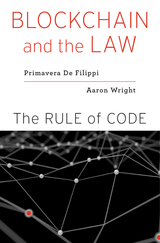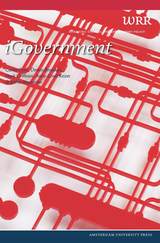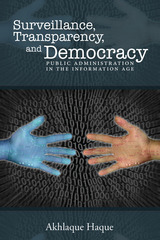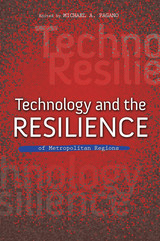
“Blockchains will matter crucially; this book, beautifully and clearly written for a wide audience, powerfully demonstrates how.”
—Lawrence Lessig
“Attempts to do for blockchain what the likes of Lawrence Lessig and Tim Wu did for the Internet and cyberspace—explain how a new technology will upend the current legal and social order… Blockchain and the Law is not just a theoretical guide. It’s also a moral one.”
—Fortune
Bitcoin has been hailed as an Internet marvel and decried as the preferred transaction vehicle for criminals. It has left nearly everyone without a computer science degree confused: how do you “mine” money from ones and zeros?
The answer lies in a technology called blockchain. A general-purpose tool for creating secure, decentralized, peer-to-peer applications, blockchain technology has been compared to the Internet in both form and impact. Blockchains are being used to create “smart contracts,” to expedite payments, to make financial instruments, to organize the exchange of data and information, and to facilitate interactions between humans and machines. But by cutting out the middlemen, they run the risk of undermining governmental authorities’ ability to supervise activities in banking, commerce, and the law. As this essential book makes clear, the technology cannot be harnessed productively without new rules and new approaches to legal thinking.
“If you…don’t ‘get’ crypto, this is the book-length treatment for you.”
—Tyler Cowen, Marginal Revolution
“De Filippi and Wright stress that because blockchain is essentially autonomous, it is inflexible, which leaves it vulnerable, once it has been set in motion, to the sort of unforeseen consequences that laws and regulations are best able to address.”
—James Ryerson, New York Times Book Review


In this well-informed yet anxious age, public administrators have constructed vast cisterns that collect and interpret a meteoric shower of facts. Akhlaque Haque demonstrates that this pervasive use and increasing dependence on information technology (IT) enables sophisticated and well-intentioned public services that nevertheless risk deforming public policy decision-making and sees a contradiction inherent in a public that seeks services that require a level of data collection that in turn triggers fears of a tyrannical police state.
The author posits that IT’s potential as a tool for human development depends on how civil servants and citizens actively engage in identifying desired outcomes, map IT solutions to those outcomes, and routinize the applications of those solutions. This leads to his call for the development of entrepreneurs who generate innovative solutions to critical human needs and problems. In his powerful summary, he recaps possible answers to the question: What is the best way a public institution can apply technology to improving the human condition?
Engrossing, challenging, and timely, Surveillance, Transparency, and Democracy is essential reading for both policy makers as well as the great majority of readers and citizens engaged in contemporary arguments about the role of government, public health and security, individual privacy, data collection, and surveillance.

In this new collection, Michael A. Pagano curates engagement with such questions by public intellectuals, stakeholders, academics, policy analysts, and citizens. Each essay explores issues related to the impact and opportunities technology provides in government and citizenship, health care, workforce development, service delivery to citizens, and metropolitan growth. As the authors show, rapidly emerging technologies and access to such technologies shape the ways people and institutions interact in the public sphere and private marketplace. The direction of metropolitan growth and development, in turn, depends on access to appropriate technology scaled and informed by the individual, household, and community needs of the region.
Contributors include Randy Blankenhorn, Bénédicte Callan, Jane Fountain, Sandee Kastrul, Karen Mossberger, Dan O'Neil, Michelle Russell, Alfred Tatum, Stephanie Truchan, Darrel West, and Howard Wial.
READERS
Browse our collection.
PUBLISHERS
See BiblioVault's publisher services.
STUDENT SERVICES
Files for college accessibility offices.
UChicago Accessibility Resources
home | accessibility | search | about | contact us
BiblioVault ® 2001 - 2024
The University of Chicago Press









